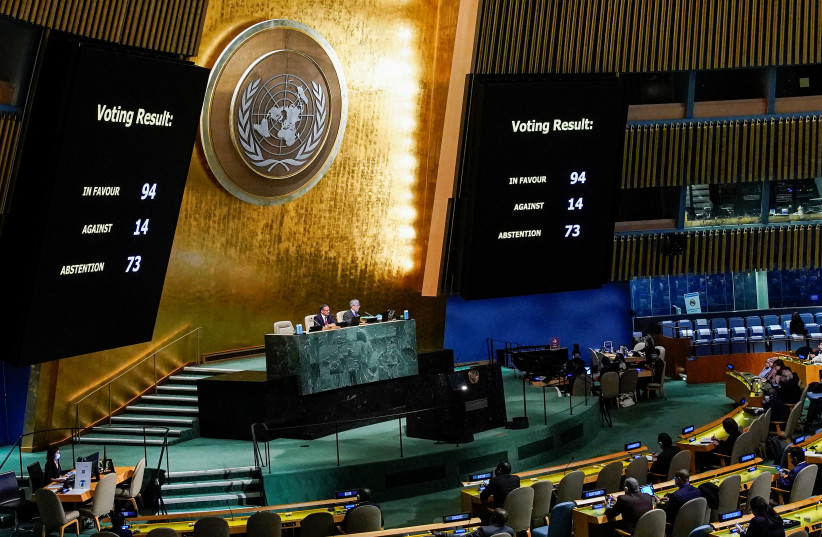Russian Deputy Foreign Minister Sergei Ryabkov said on Thursday that Moscow had been forced to suspend its participation in the New START nuclear arms control treaty because Washington was using it to help Ukraine attack Russian strategic sites.
Speaking at the United Nations Conference on Disarmament in Geneva, Ryabkov said the United States and its Western allies wanted to see Russia strategically defeated in Ukraine and accused them of fanning conflict there.
"The situation further degraded after US attempts to 'probe' the security of Russian strategic facilities declared under the New START Treaty by assisting the Kyiv regime in conducting armed attacks against them," Ryabkov said.
"Under these circumstances, we were forced to announce the suspension of the treaty."
In separate comments to reporters after his speech, Ryabkov alleged that Ukraine would have been unable to target Russian infrastructure with drone attacks without US help.

"We know that those attacks would never be possible in absence of very deep and sophisticated assistance by the US to the Ukrainian military," he said.
'Provocative action'
Protesting Ryabkov's presence at Conference on Disarmament, the permanent representatives of the United States, France, and other Western countries at the United Nations in Geneva stood outside the room, posing with blue and yellow Ukrainian flags and signs that read #standwithukraine.
"We wanted to be clear that we ambassadors are not going to be sitting in the Conference on Disarmament or the Human Rights Council listening to the lies and distortions of some Russian deputy foreign minister," British ambassador Simon Manley told Reuters.
President Vladimir Putin announced last week that Russia was suspending its participation in New START and signed a law to that effect on Tuesday, drawing scorn from the West.
Ukraine's permanent representative to the UN in Geneva, Yevheniia Filipenko, described it on Thursday as "yet another provocative action by the aggressor state."
The treaty, signed by Moscow and Washington in 2010 and due to expire in 2026, caps the number of strategic nuclear warheads that each side can deploy. It allows each country to physically check the other's nuclear arsenal, although tensions over Ukraine had already brought inspections to a halt.
Ryabkov, who said Russia would continue to comply with the limits on strategic offensive arms set by the pact, expressed concern that the United States could one day carry out a nuclear test.
"If the US does not test, we will not, but we should be prepared for the worst," he told reporters.
